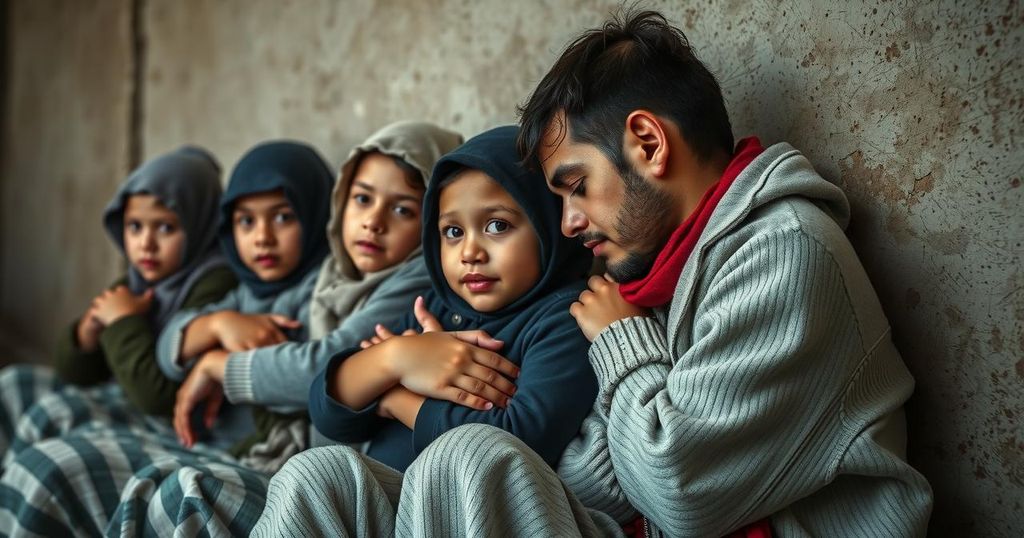The Human Cost of Syria’s Civil War: Capturing the Stories of the Missing and the Lost

The article recounts the suffering experienced by Syrians in the wake of the regime’s oppressive practices during the civil war. It details the stories of Mazen al-Hamada, Rania al-Abbasi, and Tal al-Mallouhi, each representing the widespread loss and quest for justice among families impacted by the conflict. While some have found freedom, many remain missing, embodying the need for accountability in post-war Syria.
In the aftermath of the fall of President Bashar al-Assad, many Syrians have frantically sought out their missing relatives from the regime’s infamous detention facilities. While thousands of prisoners have been freed from years of severe mistreatment, countless others remain unaccounted for, in a climate of despair that has deepened as time progresses. The Syrian Observatory for Human Rights estimates that nearly half a million individuals lost their lives in the civil war, with up to 100,000 presumed dead in government-operated prisons.
One poignant narrative amidst this turmoil is that of Mazen al-Hamada, who epitomizes the suffering endured by many. An activist who fervently opposed Assad’s regime from the onset of the protests in 2011, al-Hamada faced brutal imprisonment and torture after his arrest in 2012. Despite surviving the harrowing experience and subsequently speaking out about it, he tragically returned to the country and was forcibly disappeared, only for his remains to surface after a recent prison uprising.
Rania al-Abbasi’s family suffered a parallel fate when she and her children were taken by security forces after a benign humanitarian act. Her sister Naila’s relentless quest to find her family has yielded no information, leaving her in a state of anguish as she grapples with the uncertainty surrounding their fate. With approximately 100,000 Syrians unaccounted for, her distress reflects the feelings of numerous families.
Lastly, Tal al-Mallouhi spent over a decade entangled in the oppressive regime’s grasp, arrested at 19 for her blogging posts. Released only recently, her story of resilience highlights the plight of many young activists. Even as she reunites with her mother, the long-lasting impacts of her experience remain unknown. Each of these accounts demonstrates the profound human cost of Syria’s protracted conflict and the need for accountability and justice.
The personal stories of Mazen al-Hamada, Rania al-Abbasi, and Tal al-Mallouhi serve as a testament to the individual tragedies resulting from the Syrian regime’s oppressive policies. Their experiences not only illustrate the horror endured by countless others in similar circumstances but also emphasize the urgent necessity for justice and reconciliation to assist in healing a war-torn nation.
The Syrian civil war, which sparked in 2011, has devastated the country and resulted in immense suffering and unimaginable loss. The conflict led to widespread arrests, abuse, and disappearances, particularly by the regime’s security forces. Estimates from various human rights organizations indicate that an alarming number of individuals have been killed or remain missing due to government actions. As Syria transitions and the regime faces challenges, families are left to cope with the painful absence of their loved ones, many still striving for justice and accountability for the atrocities committed during the war.
The harrowing narratives of the individuals affected by Syria’s civil war illuminate the profound anguish experienced by families searching for their loved ones and striving for justice amidst the chaos. As the region undergoes significant changes, the plight of those still missing and the memories of the tortured individuals like Mazen al-Hamada serve as crucial reminders of the urgent need for accountability and support for survivors. Their stories must continue to resonate as part of the broader quest for justice in Syria.
Original Source: edition.cnn.com








